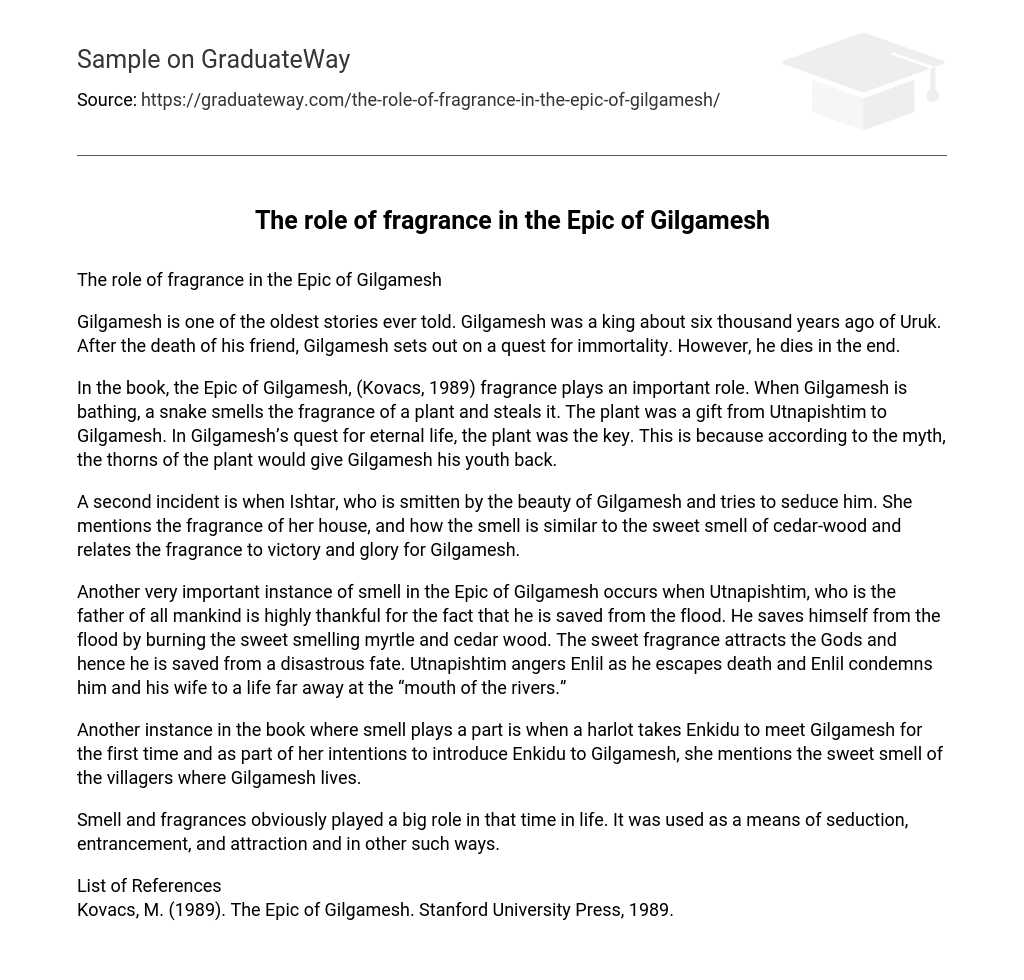Gilgamesh is one of the oldest stories ever told. He was a king about six thousand years ago in Uruk. After the death of his friend, Gilgamesh sets out on a quest for immortality. However, he dies in the end.
In the book The Epic of Gilgamesh (Kovacs, 1989), fragrance plays an important role. When Gilgamesh is bathing, a snake smells the fragrance of a plant and steals it. The plant was a gift from Utnapishtim to Gilgamesh. In Gilgamesh’s quest for eternal life, the plant was the key. This is because, according to the myth, the thorns of the plant would give Gilgamesh his youth back.
A second incident occurs when Ishtar, who is smitten by the beauty of Gilgamesh, tries to seduce him. She mentions the fragrance of her house and how it is similar to the sweet smell of cedarwood. She relates the fragrance to victory and glory for Gilgamesh.
Another very important instance of smell in the Epic of Gilgamesh occurs when Utnapishtim, who is the father of all mankind, is highly thankful for the fact that he is saved from the flood. He saves himself from the flood by burning sweet-smelling myrtle and cedar wood. The sweet fragrance attracts the Gods, and hence he is saved from a disastrous fate. Utnapishtim angers Enlil as he escapes death, and Enlil condemns him and his wife to a life far away at the “mouth of the rivers.”
Another instance in the book where smell plays a part is when a harlot takes Enkidu to meet Gilgamesh for the first time. As part of her intentions to introduce Enkidu to Gilgamesh, she mentions the sweet smell of the villagers where Gilgamesh lives.
Smell and fragrances obviously played a big role in that time in life. They were used as a means of seduction, entrancement, attraction, and in other similar ways.
List of References:
Kovacs, M. (1989). The Epic of Gilgamesh. Stanford University Press.





